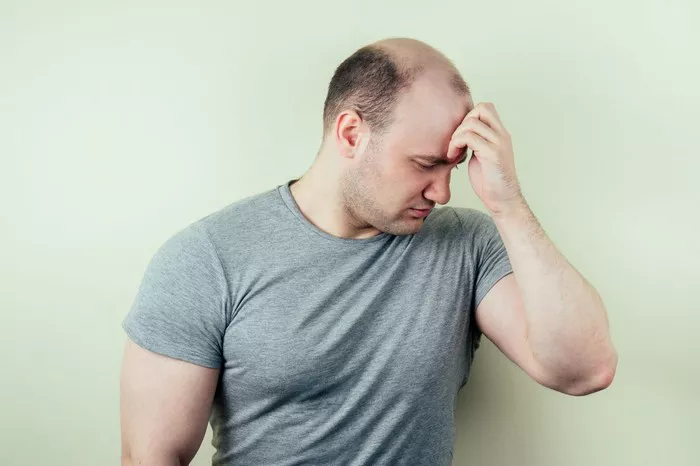Hair loss can be a distressing experience for individuals, impacting not only their physical appearance but also their emotional well-being. While there are various causes of hair loss, one lesser-known factor is autoimmune disorders. In these conditions, the immune system mistakenly attacks the body’s own cells, including those in hair follicles, leading to hair loss. Understanding the types of autoimmune disorders that can cause hair loss and the available treatment options is crucial for individuals grappling with this condition.
I. Types of Autoimmune Disorders Causing Hair Loss:
Alopecia Areata: Alopecia areata stands out as a prevalent autoimmune disorder characterized by sudden and often unpredictable hair loss in small, round patches. The immune system targets the hair follicles, causing hair to fall out. The condition can progress to more extensive forms, including total scalp hair loss (alopecia totalis) or complete body hair loss (alopecia universalis). The emotional toll of alopecia areata is significant, as individuals grapple with the unpredictability of hair loss patterns.
Lupus: Systemic lupus erythematosus (SLE) is a chronic autoimmune disease affecting multiple organs, including the skin. In the context of lupus, a specific type of hair loss known as discoid lupus erythematosus (DLE) may manifest. DLE is characterized by coin-shaped lesions on the scalp, resulting in scarring and subsequent hair loss. The challenges posed by lupus extend beyond the physical symptoms, impacting the overall quality of life for those living with this autoimmune disorder.
Hashimoto’s Thyroiditis: Hashimoto’s thyroiditis, primarily targeting the thyroid gland, is an autoimmune disorder that can also contribute to hair loss. As the immune system attacks the thyroid, it disrupts the hormonal balance in the body, leading to hair thinning and loss. The interconnection of autoimmune disorders highlights the complex nature of these conditions and the need for a comprehensive approach to diagnosis and treatment.
II. Treatment Options for Autoimmune-Related Hair Loss:
Corticosteroids: Corticosteroids play a pivotal role in the treatment of autoimmune-related hair loss. Whether applied topically, injected into the scalp, or taken orally, these medications work by suppressing the immune response and reducing inflammation. By doing so, corticosteroids can help slow down the progression of hair loss and create a more favorable environment for regrowth. However, prolonged use may be associated with side effects, necessitating careful monitoring by healthcare professionals.
Immunosuppressive Drugs: Immunosuppressive drugs, such as methotrexate or cyclosporine, are prescribed to manage autoimmune-related hair loss by modulating the immune response. These medications work to suppress the activity of the immune system, preventing further damage to hair follicles. While effective, the use of immunosuppressive drugs requires careful consideration of potential side effects and the overall impact on the individual’s immune function.
Topical Immunotherapy: In the case of alopecia areata, topical immunotherapy is a targeted approach to stimulate hair regrowth. Substances like diphencyprone or squaric acid dibutylester are applied to the scalp, inducing an allergic reaction. This reaction redirects the immune response away from the hair follicles, promoting regrowth. Topical immunotherapy is a specialized treatment that should be administered under the supervision of a dermatologist or healthcare professional to ensure its safety and efficacy.
III. FAQs on Autoimmune-Related Hair Loss:
Q1: Can autoimmune-related hair loss be reversed?
A1: The reversibility of autoimmune-related hair loss varies among individuals. With appropriate and timely treatment, some individuals experience significant regrowth. However, the extent of recovery is influenced by factors such as the severity of the autoimmune condition and the individual’s response to treatment. It is essential to consult with a healthcare professional for personalized guidance.
Q2: Are there lifestyle changes that can help manage autoimmune-related hair loss?
A2: While specific lifestyle changes may not directly reverse autoimmune-related hair loss, maintaining a healthy lifestyle can contribute to overall well-being. A balanced diet, stress management, and regular exercise support general health, potentially indirectly impacting hair health. However, these lifestyle measures are complementary and should be integrated with medical treatment for a comprehensive approach.
Q3: Is hair loss from autoimmune disorders permanent?
A3: The permanence of hair loss resulting from autoimmune disorders depends on various factors. Some individuals may experience temporary hair loss, especially with early and effective treatment. However, for others, particularly those with advanced conditions, the impact on hair follicles may be more lasting. Continuous monitoring and follow-up with healthcare professionals are crucial to assess the progression of the condition.
Q4: Can autoimmune-related hair loss be prevented?
A4: While it may not be possible to prevent autoimmune disorders, early intervention and appropriate medical treatment can help manage the underlying condition and minimize the impact on hair loss. Regular medical check-ups, especially for individuals with a family history of autoimmune disorders, can contribute to early detection and timely intervention. Prevention strategies are focused on addressing the root cause of the autoimmune response and maintaining overall health.
In conclusion, understanding the connection between autoimmune disorders and hair loss is essential for both individuals experiencing these symptoms and healthcare professionals. Timely diagnosis, coupled with appropriate treatment options, can significantly improve outcomes and alleviate the physical and emotional burden associated with autoimmune-related hair loss.

